nature based practice
Since ancient times the world of wild nature has been highly revered by sages, yogis, and poets as a place supporting radical self transformation. They sing its praise as a space “off the path” where the depths of reality can be encountered in a many layered richness.
In more recent times, it has become apparent that connection with wild nature is an important aid to developing an ecological sensibility and sense of connection with the web of life. This can support action towards a sustainable future for all.
At one level the value of immersion and practice in nature is obvious. How many times have we been returned to a fuller sense of ourselves by taking a short walk in the woods? How often do we return replenished by new perspectives after a while gazing across the ocean? Of course it goes further than that. Many of us also know how land and sky can bring us to a deep sense of awe and wonder at the nature of things. And sometimes these experiences demand that we radically re-orientate our sense of who and what we are.
 At the Ecodharma Centre, we know ourselves the transformative and integrative power of immersion in non-human nature. We want to support others to re-connect with that source of nourishment, well-being, and inspiration. So, integrating insights and methods from both dharmic and ecological sources, we apply an approach that we call Nature Based Practice and Learning.
At the Ecodharma Centre, we know ourselves the transformative and integrative power of immersion in non-human nature. We want to support others to re-connect with that source of nourishment, well-being, and inspiration. So, integrating insights and methods from both dharmic and ecological sources, we apply an approach that we call Nature Based Practice and Learning.
What does Nature Based Practice look like?
In simple terms Nature Based Practice and Learning involves supporting participants to spend time out in the wilds connecting with the teachings nature offers. We use tools such as mindfulness practice and mediation in conjunction with elements of bushcraft, nature based education, as well as ecological and evolutionary learning. Most importantly we encourage silent solitary time in intimate relationship with wild nature. We do this in a way that recognises the differing degrees of support that people require to make this kind of experience useful.
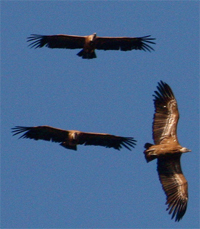 The Ecodharma Centre is based in an extraordinary and wild place. From this supportive base, Nature Based Practice and Learning can help us step out of the human-centred world for a while – to wander deep into tangled woodland, to lie on mossy rocks, to sit in limestone caves, to traverse lofty ridges, and to loll on the edge of trickling streams. There we can find something else.
The Ecodharma Centre is based in an extraordinary and wild place. From this supportive base, Nature Based Practice and Learning can help us step out of the human-centred world for a while – to wander deep into tangled woodland, to lie on mossy rocks, to sit in limestone caves, to traverse lofty ridges, and to loll on the edge of trickling streams. There we can find something else.
We regularly build elements of Nature Based Practice and Learning into our retreats and events, sometimes in an almost invisible way! On many events we use “solo days” – sometimes casually, sometimes in a more ritualised form – as a way of supporting people to deepen their practice in nature. We are also developing a series of longer events that take Nature Based Practice and Learning as a core theme and approach – and can incorporate multiple days of immersion in the wild.
The Ecological Influence on Nature Based Practice – deep ecology and ecopsychology
On an everyday level, an increasing appreciation of the importance of direct immersion in the natural world for learners of ecological and sustainability themes has led to a renewal of environmental educational practice. Simply spending time in wild natural environments can, when introduced and supported in a sensitive way, lead to a deepening awareness of the richness and diversity of life outside ourselves. Nature is a teacher. Learning to listen to its teachings can lead naturally to a greatly increased ecological sensibility. Such sensibility is an important factor supporting people to become more grounded in themselves and more able to act in service of the sustainable transformations that our society is so in need of.
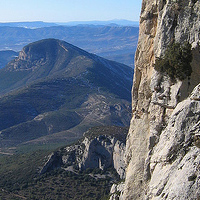 This shift in practice can be seen in schemes such as Forest Schools, award winning projects such as Down to Earth, and holistic approaches to teaching science (such as developed by Stephan Harding at the Schumacher College). These constitute valuable developments and practices some of which we incorporate into our teaching.
This shift in practice can be seen in schemes such as Forest Schools, award winning projects such as Down to Earth, and holistic approaches to teaching science (such as developed by Stephan Harding at the Schumacher College). These constitute valuable developments and practices some of which we incorporate into our teaching.
Underpinning these developments are the insights of figures like Henry David Thoreau, John Muir, and Aldo Leopold. These early “deep ecologists” have all pointed to the importance of connection with the wild and non-human world in the healing of alienation and the discovery of ecological consciousness.
The ongoing crisis of civilisation has painfully brought to our attention just how habituated humanity has become to alienation. Individually and socially we are failing to honour the ecological dimension of our identity – one of the most fundamental aspects of who we are. This alienation is having a devastating effect on the human and non-human world. Ecopsychology practitioners and writers, such as Theodore Roszak, Paul Shepard, and James Hillman, point out that healing this alienation in ourselves is important not only for the individual, but is also a key to transforming the damaging tendencies of our increasingly unsustainable societies. They acknowledge that psychological well-being is not a merely internal matter, but is reflected in the health of the ecological and social networks we inhabit. Self-transformation and social transformation are seen as mutually supportive.
The deeper healing of alienation from nature involves a profound re-orientation of our human identity and the views which underpin it. Writers on Deep Ecology have pointed out how modern society is rooted in views based on “anthropocentrism” or the human centeredness of the world. In their analysis, of what they call the Dominant Western World View, sociologists William Catton and Riley Dunlap point to the cornerstone assumption that: “People are fundamentally different from all other creatures on Earth, over which they have dominion (defined as domination)”.
The arrogance of this view cuts us off from our animal, biological and even evolutionary roots. And it feeds into the modern western tendency to split off mind and body – prioritising mind and our “higher functions” at the expense of embodiment. It can lead us to value rationality at the expense of other more experientially embodied aspects of human nature – such as emotionality, sensuality and intuition. This kind of approach can inform repressive and disembodied pseudo-spiritual practices.
Re-connecting with the land and non-human nature is a pathway back into connection with our own body and heart, and the extended body and heart that is our ecological and evolutionary heritage. It can support us re-balancing the rational with other dimensions of experience – body, heart and imagination – so intrinsic to holistic well-being and an integrated sense of our potential.
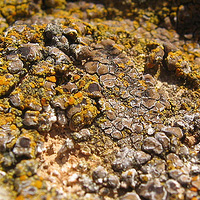 So much of the world we frequent has been constructed in service of humanity. We are mostly so enveloped in the urbanised human-centred environment, that we forget that the world is actually wild. Our minds spend so much time stuck within narrow human-constructed views of the world, we can forget that the wild is untamed by our conceptualisation of it.
So much of the world we frequent has been constructed in service of humanity. We are mostly so enveloped in the urbanised human-centred environment, that we forget that the world is actually wild. Our minds spend so much time stuck within narrow human-constructed views of the world, we can forget that the wild is untamed by our conceptualisation of it.
However, Deep Ecologists point to the enrichment and expansion possible through stepping out of that world for a while. Spending time in the wilds, intimately amongst the rocks, mosses and expansive sky; letting go of our claustrophobically limited human pre-occupations, can help us to remember that food grows on trees; that clean drinking water can flow out of the ground; that excrement gives life back to the earth. We can see how these elements in turn flow through us. We can sense how the construction of an “in here” and “out there” is a limiting convention. In a sense, this is a simple awareness. In is also the basis for a profound re-orientation of our self and society.
The three aspects of Deep Ecological and Ecopsychological learning
Deep Ecological and Ecopsychological practice helps us to:
1. Reclaim a healthy and integrated sense of self – rooted in the ecological, biological, sensory, and emotional, as well as rational dimensions of self.
2. Deconstruct the human conceit that we are somehow separate and above nature in ways that perpetuate alienation; confront our tendencies to assert our selves over and against nature in a way that cuts us off from the sources of nourishment and inspiration that can flow into us from the web of life.
3. Open us up to deeper layers of inter-connectedness, which can liberate us from a restrictive sense of self – freeing our energies in compassionate service to life. Letting go of a conceited and narrow human identity can renew a deeply connected sense of self, rooted in the ecological and evolutionary, enabling us to grow into what some Deep Ecologists have called “ecological consciousness”.
The Dharma Influence on Nature Based Practice
The value of practice immersed in the wild is well known in the history of Buddhism. The Buddha himself left the confines of the palace to live and practice at the root of trees. Those who followed him in “going forth” lived as small bands or hermits in forests and woodland. And the motif of the forest renunciate, or of practitioners retreating into the wilds, recurs again and again – the Thudong forest dwellers of Thailand, the wild yogis and Mahasiddhis of Buddhist tantra, the mountain hermits and poets of Zen.
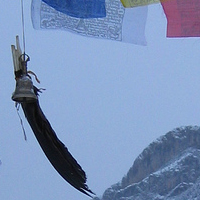 Throughout Buddhist history we often come across the stories of dedicated practitioners finding themselves somehow called to wander out of the institutions and monasteries into pathless wilderness and mountain caves. There they found spaces of deepening understanding which in turn re-vitalised the tradition. Even the monastery can become a place of confinement and dusty dogma that requires renewal from other sources. For some their home is closer to those sources, as Zhiang-yan wrote,
Throughout Buddhist history we often come across the stories of dedicated practitioners finding themselves somehow called to wander out of the institutions and monasteries into pathless wilderness and mountain caves. There they found spaces of deepening understanding which in turn re-vitalised the tradition. Even the monastery can become a place of confinement and dusty dogma that requires renewal from other sources. For some their home is closer to those sources, as Zhiang-yan wrote,
[The hermit] takes the purple heavens to be his hut, the encircling sea to be his pond, roaring with laughter in his nakedness, walking along singing with his hair hanging down.
Or as the Tang dynasty poet Han-shan writes:
I settled at Cold Mountain long ago,
Already it seems like years and years.
Freely drifting, I prowl the woods and streams
And linger watching things themselves.
Men don’t get this far into the mountains,
White clouds gather and billow.
Thin grass for a mattress,
The blue sky makes a good quilt.
Happy with a stone under head
Let heaven and earth go about their changes.
The Buddhist world is filled with such testimony to the power of contact with the natural world to transform. The yogis and hermits of the mountains, from ancient times, sing the praises of getting off the path and into the hills, out of the dusty world of towns and people and into the wide open spaces of the mountains and tangled thickets of the forest.
At the Ecodharma Centre we are fortunate to be able to offer both the supportive space of the centre and the surrounding wilds to wander into. We understand that periods of practice “off the path” are integral to the path itself!
Nature Based Practice and The Path of Integration, Insight, and Action
One of the first steps on the transformative path of Dharma involves integrating ourselves. We can often find our own internal world fragmented and unconsciously driven by conflictive tendencies. Through deepening self-awareness through meditation and the gentle directedness of ethical conduct, we learn to harmonise these contrary and unconscious aspects of our self. With this comes greater clarity of purpose, continuity of experience, balance, and vitality.
This process of integration involves learning to turn our energy, through mindfulness and meditation, away from tendencies to construct layers of interpretation on top of our more primary experience. Key to this is learning to settle in mindful awareness of our direct experience, especially as located in the body.
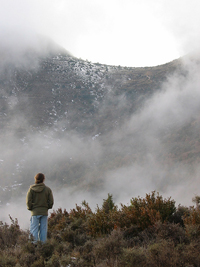 For many meditators, healing the damaging tendencies of the mind-body split that characterises modern consciousness is one of the first elements of fragmentation they need to heal. And this mindful re-embodying of our experience is well supported by practice in nature. Through connecting with the earth we re-connect with and honour our own embodiment more fully. Yet it goes deeper than that. For us to become truly healthy human beings, re-owning our deeper ecological identity is also vital.
For many meditators, healing the damaging tendencies of the mind-body split that characterises modern consciousness is one of the first elements of fragmentation they need to heal. And this mindful re-embodying of our experience is well supported by practice in nature. Through connecting with the earth we re-connect with and honour our own embodiment more fully. Yet it goes deeper than that. For us to become truly healthy human beings, re-owning our deeper ecological identity is also vital.
Early Buddhism seems to give little explicit emphasis to this. Perhaps this is partly because it was traditionally rooted in cultures where the alienation of humanity from nature was not as stark as it is in our times. However, we do find the importance of our ecological identity acknowledged implicitly in much of the animistic symbolism which surrounds the tradition. A quite obvious example is the crucial role the Earth Goddess plays in the legendary account of the Buddha’s enlightenment. Then of course, we find the idea embraced in the renunciate traditions we have mentioned – culminating in works like Dogen’s famous Mountains and Waters Sutra.
Today we need to do more to re-engage with the elements of the natural world and come to feel how their life and ours are bound together. Meditation and reflection in nature helps us to see how what we call our self is made up of the great elements, how their flow and patterning is not separate to us. Truly re-embodying our experience is to also rediscover our body within the evolutionary and ecological body out of which it grows. Real integration includes re-integrating ourselves with our basic ecological and organic identity – without this human identity remains a superficial and fragile shell.
In Buddhism the lotus is often presented as an image of transformation. For the lotus to unfold in its organic beauty its roots need to be well established in the nutritive muck at the bottom of the lake. Our own healthy transformation requires that we too know our roots in the organic and ecological. Nature based practice helps us to bring our awareness back to those nourishing connections.
So, nature based practice supports the traditional process of integration found in dharma practice, but it also augments and amplifies this process – with special relevance to the conditions of the modern world. Integration comes to be seen as not merely a personal matter, but also one of how the self is integrated within the greater richness of the organic world – and how it is related to the health of our societies and the health of the planet.
Periods of retreat are generally a great aid to the process of integration. They enable us to meet ourselves in many ways. Practicing in the wild creates a whole additional arena for this meeting – our shifting moods play off against the landscape, our preferences and expectations bump up against a wild world that won’t conform. Working with these experiences and encounters are all integral to the healthy process of ‘horizontal’ integration – or the integration of our conscious self.
Through practice in nature, we also meet deeper and even ‘transpersonal’ aspects of ourselves, which can be drawn into what can be called the process of ‘vertical’ integration. We can find spaces which enable us to step into the imaginal realms testified to by so many vision quest traditions, allowing sources of inspiration and vision to touch us. The wild is an especially supportive environment for this whole range of encounters, which with the right support can be assimilated and integrated to enrich and expand the sense of who we are.
On the basis of integration arises insight and the activity that flows from insight. One way of getting a sense of insight is to think of it in terms of a breaking down of our narrow assumptions about the way things are and, especially from a dharmic perspective, our view of the self as a separate and really existing entity. As we move towards a fuller and more direct awareness of the nature of things, there arises a subsequent re-alignment of our life in accordance with that insight.
Some contemporary dharma teachers, like Sangharakshita, speak of this process in terms of spiritual death and spiritual rebirth. We die to the limited view of self which is bound by habit and self-centredness. And we are reborn into a fuller sense of creative life where we act out of our sense of inter-connectedness with life – a heartfelt sense of connection which we might speak of as compassion.
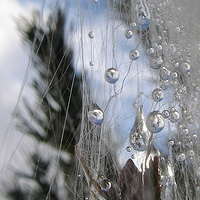 Traditional meditation practices like the six element practice are often used to explore how what we tend to view as a separate and enduring self is, in fact, a transient set of conditions and processes, the flowing through of the great elements of the world we usually view as “not-self”. Such practices help us to loosen our sense of the separate self and open up to our woveness within the fabric of ecology and evolution. Exploring these meditation practices and mindfulness in the wild can greatly enhance our sense of their value, and developing an ecological sensibility can be seen as paralleling the traditional process in contemporary terms.
Traditional meditation practices like the six element practice are often used to explore how what we tend to view as a separate and enduring self is, in fact, a transient set of conditions and processes, the flowing through of the great elements of the world we usually view as “not-self”. Such practices help us to loosen our sense of the separate self and open up to our woveness within the fabric of ecology and evolution. Exploring these meditation practices and mindfulness in the wild can greatly enhance our sense of their value, and developing an ecological sensibility can be seen as paralleling the traditional process in contemporary terms.
In fact, returning to the Three Aspects of Deep Ecological Practice we referred to before, we can see some clear parallels between these and stages of the path of dharma: 1) Integration and positive emotion, 2) Insight in terms of Spiritual Death, and 3) Insight in terms of Spiritual Rebirth.
While there are some clear parallels, dharma practice also offers some specific tools which augment and deepen Deep Ecological and ecopsychological approaches. The concentration, clarity of mind, and open-heartedness which can be fostered in meditation, the quality of attentive mindfulness, the refining of sensibility, the cultivation of receptivity, and directed reflection – all greatly augment and support the ecological insights and bring them into the service of radical self-transformation.
Applying these core dharma methods, within a context of nature based practice, we might be able to follow the advice of Ajhan Chan, from the Thai Forest Sangha:
Like a Buddha, we too should look around us and be observant, because everything in the world is ready to teach us. With even a little intuitive wisdom we will be able to see clearly through the ways of the world. We will come to understand that everything in the world is a teacher. Trees and vines, for example, can all reveal the true nature of reality. With wisdom, there is no need to question anyone, no need to study. We can learn from Nature enough to be enlightened because everything follows the way of Truth. It does not diverge from Truth.
How does it work?
The centre is situated high in a remote valley, surrounded by a rich and varied terrain. With the centre as a base, it is easy to set out into the wilds for some hours, days or weeks at a time. Members of the ecodharma team facilitate these activities along with guest facilitators in a way which supports both the integrative and healing aspects of nature based practice and its radically transformative potential.
The terrain is varied and offers spaces which are intimate, gentle and holding, to those which are windswept, airy, and the rugged. We can wander through and take up residence in caves and forest groves, by streams and cascades, boulder fields and densely flowered meadows.
To immersion in nature and environmental learning, we add the significant methods of meditation, mindfulness practice, as well as experiential workshops and theoretical tools. These all act to support the direct experience of practitioners, helping them to pass through increasingly deeper levels of understanding of their selves and the world.
As well as meditational and theoretical support we also offer basic skills and material support which can make these encounters sufficiently safe and supportive of well-being. Frequenting mountains, forests, and wild places inevitably entails risks, but these can be sensibly managed.
 A little knowledge of some outdoor skills and bush-craft can be a great support. Knowing how to stay safe, warm, nourished and dry; knowing the lie of the land; knowing how to find your way, and how to get help if it is needed. These are all important skills that can make your time practicing in nature work well, enabling you to feel increasingly at home in the wild. Similarly, we suggest and provide some basic gear for being out in a variety of mountain weather and perhaps for setting up a place to sleep out or to use as a regular mediation spot (in a cave or at the roots of old trees). Having both the centre and experienced support on hand is of great value.
A little knowledge of some outdoor skills and bush-craft can be a great support. Knowing how to stay safe, warm, nourished and dry; knowing the lie of the land; knowing how to find your way, and how to get help if it is needed. These are all important skills that can make your time practicing in nature work well, enabling you to feel increasingly at home in the wild. Similarly, we suggest and provide some basic gear for being out in a variety of mountain weather and perhaps for setting up a place to sleep out or to use as a regular mediation spot (in a cave or at the roots of old trees). Having both the centre and experienced support on hand is of great value.
Some basic knowledge about the landscape, the ecology of place and its evolutionary history can often support a deepening sense of connection with the land. Knowing how to read the evolutionary story in the landscape, to recognise species and understand their inter-relationships, also enhances our sense of the rich and complex conditioned reality we are witness to. So sometimes we build into our work simple geographical, geological and ecological understandings of the place. We do this with an emphasis on how this kind of understanding can help shift our awareness of self – how that knowledge can help us enter into an appreciation of deep time perspectives and levels of interconnectedness. By dropping these ideas into a context of deeper reflection and meditation they take us to places that school science classes were never intended to!
Real care needs to be taken that this approach does not simply play into narcissistic and heroic fantasies. A careful balance needs to be found between challenge and well-being. An overly ascetic and heroic approach has its own pitfalls – not least a reinforcement of self-aggrandisement! We’ve become increasingly able to help steer people in a middle way whereby they can challenge themselves in a way that is helpful and not counter-productive. Of course, it is not all about challenge. Lazying around in a flowered meadow, or studying the intimacies of lichen and mosses at the roots of trees, can be just as valuable as scaling the heights!
Nature based practice is not intended as a kind of endurance test. Even if at times testing our endurance can be profitable, that’s not always the case. Nor is it a kind of pseudo-spiritual version of special force survival training! It is important that it is approached without too many expectations and that a self-caring and gentle approach is taken. So, we support people to learn how much they can usefully push and how much to take it gently – searching out that elusive but essential balanced effort.
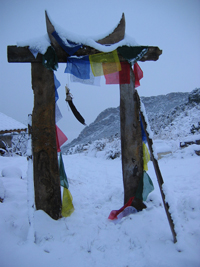 We build this approach into many of our retreats and events. On many events, we use “solo days” as a way of supporting people to deepen their practice in nature. These can last from morning to evening or sometimes 48 hours. Sometimes they are done in a very simple way where participants are supported just to get out into the hills and woods on their own and see what arises. At other times we might more strongly ritualise the solo days, creating a kind of doorway through which participants step into their focused kind of vision quest or intensive outdoor solitary meditation session.
We build this approach into many of our retreats and events. On many events, we use “solo days” as a way of supporting people to deepen their practice in nature. These can last from morning to evening or sometimes 48 hours. Sometimes they are done in a very simple way where participants are supported just to get out into the hills and woods on their own and see what arises. At other times we might more strongly ritualise the solo days, creating a kind of doorway through which participants step into their focused kind of vision quest or intensive outdoor solitary meditation session.
Members of the facilitation team for our nature based practice events include:
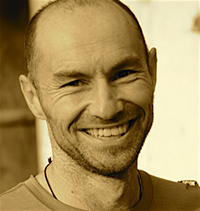 Rupert Marques, who has worked within the field of experiential environmental education for the past fifteen years with an emphasis in outdoor education. He trained extensively and subsequently worked as a guide with the School of Lost borders in the U.S. offering contemporary wilderness rites of passage.
Rupert Marques, who has worked within the field of experiential environmental education for the past fifteen years with an emphasis in outdoor education. He trained extensively and subsequently worked as a guide with the School of Lost borders in the U.S. offering contemporary wilderness rites of passage.
A practitioner in the Insight meditation tradition for over 20 years, he is interested in how experiences in wild places can serve to open the mind and remind us of what we belong to. “I am interested in how we come to find our place, our sense of belonging in the times we are living through, how we meet the magnitude of the challenges we face in a manner that calls forth our integrity and even our gratitude.”
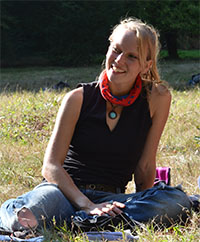 Kara Moses is a facilitator and trainer in nature connection, outdoor education and grassroots activism. She is passionate about nature, connection and the transformation of self and society to be more deeply connected and life-affirming. This involves facilitating practical applications of nature connection, to fields including direct action and social change, architecture and the built environment, mental health and emotional resilience, sustainability and climate change adaptation, and social inequality. She has spent her life working in service of the earth in diverse ways, from direct action, grassroots organising and community work to environment journalism, academic research, environmental education and conservation management. As well as independent facilitation and journalism, she works at the Centre for Alternative Technology where she manages woodlands and water, delivers courses, works with school groups and lectures on masters courses.
Kara Moses is a facilitator and trainer in nature connection, outdoor education and grassroots activism. She is passionate about nature, connection and the transformation of self and society to be more deeply connected and life-affirming. This involves facilitating practical applications of nature connection, to fields including direct action and social change, architecture and the built environment, mental health and emotional resilience, sustainability and climate change adaptation, and social inequality. She has spent her life working in service of the earth in diverse ways, from direct action, grassroots organising and community work to environment journalism, academic research, environmental education and conservation management. As well as independent facilitation and journalism, she works at the Centre for Alternative Technology where she manages woodlands and water, delivers courses, works with school groups and lectures on masters courses.
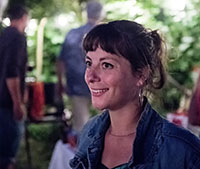 May MacKeith is an experienced nature facilitator, who’s been helping people to connect with nature for over 13 years with Forest School Camps (FSC) which brings large groups of children and adults together in temporary community for 2-week camps. For the past 6 years, she has been involved in developing and delivering training for FSC staff to help reinvigorate their passion for nature and fuel the fire in the bellies of the camps. This work formed the foundation for Wild Time Weekends, which May and the Co-Resist team set up to bring better access to nature to adults from a range of backgrounds. More recently she co-founded the Natural Resilience Project, which builds personal resilience through connection to nature with migrant women in East London. In her free time May is a passionate campaigner and activist, and for the last decade or more has worked on a range of issues, often with an environmental emphasis. With Plane Stupid she focused on aviation and went on to help establish Grow Heathrow, a squatted community food growing project in the path of the proposed 3rd runway. More recently her energy has been with Reclaim the Power, fighting dirty big business, and standing with communities being damaged by extractive industries.
May MacKeith is an experienced nature facilitator, who’s been helping people to connect with nature for over 13 years with Forest School Camps (FSC) which brings large groups of children and adults together in temporary community for 2-week camps. For the past 6 years, she has been involved in developing and delivering training for FSC staff to help reinvigorate their passion for nature and fuel the fire in the bellies of the camps. This work formed the foundation for Wild Time Weekends, which May and the Co-Resist team set up to bring better access to nature to adults from a range of backgrounds. More recently she co-founded the Natural Resilience Project, which builds personal resilience through connection to nature with migrant women in East London. In her free time May is a passionate campaigner and activist, and for the last decade or more has worked on a range of issues, often with an environmental emphasis. With Plane Stupid she focused on aviation and went on to help establish Grow Heathrow, a squatted community food growing project in the path of the proposed 3rd runway. More recently her energy has been with Reclaim the Power, fighting dirty big business, and standing with communities being damaged by extractive industries.
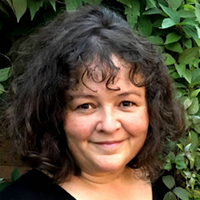 Emma Palmer (formerly known as Kamalamani) is a Bristol-based body psychotherapist, ecopsychologist, and writer. She has been practising meditation and dharma since 1995. For 21 years she has worked as a facilitator, for example: teaching postgraduate international development studies at Bristol University, with NGOs in sub-Saharan Africa, offering Wild therapy in remote corners of the UK, leading retreats, and women’s dharma study group. She has been a practising therapist since 2003 and is particularly interested in the interface between therapy and social, ecological, and climate justice and power dynamics in the therapeutic relationship. She has been a steering group member of Psychotherapist and Counsellors for Social Responsibility and editor of its journal Transformations. Emma is the author of two books and is currently writing her third as well as writing a regular piece for the US journal Somatic Psychotherapy Today. www.kamalamani.co.uk
Emma Palmer (formerly known as Kamalamani) is a Bristol-based body psychotherapist, ecopsychologist, and writer. She has been practising meditation and dharma since 1995. For 21 years she has worked as a facilitator, for example: teaching postgraduate international development studies at Bristol University, with NGOs in sub-Saharan Africa, offering Wild therapy in remote corners of the UK, leading retreats, and women’s dharma study group. She has been a practising therapist since 2003 and is particularly interested in the interface between therapy and social, ecological, and climate justice and power dynamics in the therapeutic relationship. She has been a steering group member of Psychotherapist and Counsellors for Social Responsibility and editor of its journal Transformations. Emma is the author of two books and is currently writing her third as well as writing a regular piece for the US journal Somatic Psychotherapy Today. www.kamalamani.co.uk
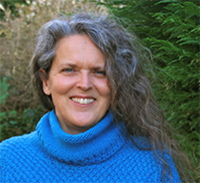 Rhonda Brandrick is a nature based guide who facilitates a deepening relationship to nature that encourages inquiry into the mysterious depths of what it means to be fully human. As part of our human development, she feels that a move away from ego-centric life and into deeper soul-centric practices are crucial if we are to re-member our true indigenous selves. She believes that we cannot mature unless we turn towards the soul of the earth and see our part in the great evolutionary story at the heart of creation.
Rhonda Brandrick is a nature based guide who facilitates a deepening relationship to nature that encourages inquiry into the mysterious depths of what it means to be fully human. As part of our human development, she feels that a move away from ego-centric life and into deeper soul-centric practices are crucial if we are to re-member our true indigenous selves. She believes that we cannot mature unless we turn towards the soul of the earth and see our part in the great evolutionary story at the heart of creation.
From her 20 years as a therapist, mediator and teacher she brings a wealth of experience and realness to her work. She has co founded Failand Training which runs a year-long certificate in ecopsychology and nature based practices. As Director of Human Nature she has led the development of courses and retreats that bring people into an ever-deepening re-connection to nature and themselves. She is currently training with Animas Valley Insitute and Bill Plotkin in becoming a Soulcraft guide.
 Marina Robb is founder and Managing Director of Circle of Life Rediscovery CIC, a leading outdoor learning organisation. Marina has been the recipient of funding from Natural England, Mind and The National Lottery, amongst other grant makers for her outdoor work with teenagers, families and young people with mental health issues. She provides residential camps in Sussex woodlands, Forest School and nature-based training for adults, outdoor learning days and youth training programmes.
Marina Robb is founder and Managing Director of Circle of Life Rediscovery CIC, a leading outdoor learning organisation. Marina has been the recipient of funding from Natural England, Mind and The National Lottery, amongst other grant makers for her outdoor work with teenagers, families and young people with mental health issues. She provides residential camps in Sussex woodlands, Forest School and nature-based training for adults, outdoor learning days and youth training programmes.
Marina is a qualified teacher (PGCE), who has studied Environmental Education (MA), Environmental Management (BSc) and Social Research (MSc) since 1990. She is a leading Forest School trainer and practitioner (UK and International) and shares her knowledge and experience through training teachers and individuals who want to work outside the classroom. Marina has spent her lifetime supporting young people and adults to find new and old ways of connecting people with nature and reap the benefits of facilitated outdoor experiences. She is certified in Gestalt group facilitation, trained in wilderness skills, youth participation, managing challenging behaviour, non-directive play therapy and teenage psychology. Marina’s approach brings together best practice from environmental education, Forest School, eco-psychology, indigenous wisdom and many years of working with young people of all ages and backgrounds, to create unique experiences.
This series has been developed with the support of an EU Life Long Learning Programme Grudtvig Partnership Grant.
Some useful background reading:
The Practice of the Wild, Gary Snyder, Shoemaker & Hoard
Ecopsychology – Restoring the Earth and Mind, edited by Theodore Roszak
Living with Awareness, Sangharakshita, Windhorse Publications
Deep Ecology, edited by Bill Devall and George Sessions, Perregrine Smith
Buddhism and Ecology, Tucker and Williams, Harvard University Press.
